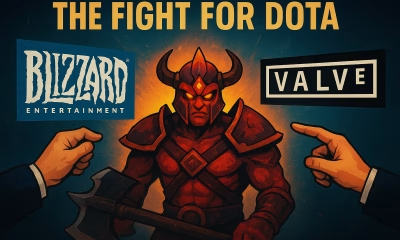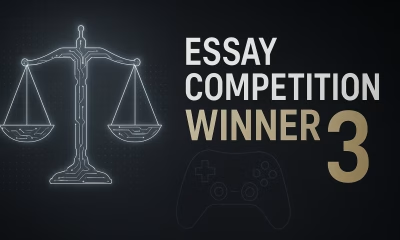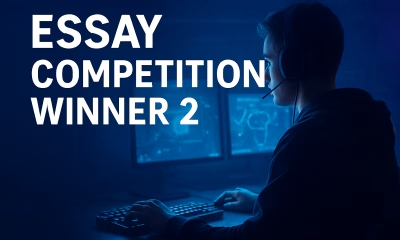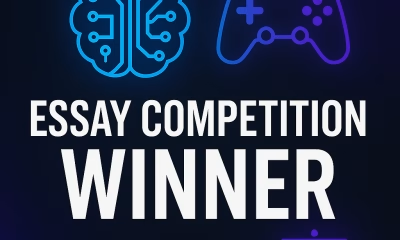Gambling
Austrian Court’s Declares Loot Boxes to be Gambling: EA and Sony Must Refund EUR 10,800 to Players Who Bought FUT Packs
In the ever-evolving gaming world, loot boxes have been controversial for years. Due to the similarities between loot boxes and gambling, several countries are considering regulating them to curb gambling problems. Recently, an Austrian court ordered Sony and Electronic Arts to refund a group of players EUR 10,800 in loot box purchases.

Table of Contents
What is a loot box ?
In the world of video games, loot boxes are virtual objects, usually in the form of a chest, which can be unlocked, found, or purchased and rewards the player with a random selection of certain items. The rewards can range from simple character customization (skins, avatars, etc.) to acquiring new equipment (weapons, armor, etc.) or new features.
These boxes can be obtained in a variety of ways. In some cases, they can be found randomly or earned by completing certain tasks in the game. In other cases, they must be purchased with real or virtual money.
FIFA, FUT Packs, Loot Boxes and the Austrian Court
The decision concerned Electronic Arts’ (“EA”) famous football simulation game FIFA. In that game, players can purchase “FIFA Points” with real money. “FIFA Points” can then be used in the game mode FIFA Ultimate Team (commonly referred to as “FUT”) to purchase packs (“FUT Packs”) to help the player build his or her dream team.
FUT Packs are virtual in-game packs containing randomized content such as players and club items. Because the specific contents of FUT Packs are randomized and not visible to players when they purchase them, this mechanic is sometimes referred to as a loot box. The player cards “drawn” from the pack can then be used in the player’s squad or sold to other players in exchange for another in-game currency called “Coins”.
In the Austrian case, a group of PlayStation players accused Sony and EA of infringing the gambling monopoly in Austria, arguing that the structure of the FUT packs amounted to gambling. The Landesgericht für Zivilrechtssachen Wien classified the FUT packs as gambling requiring a license. Since Sony, whose shop processed the players’ payments, did not have a gambling license, the contracts concluded between the company and the players were null and void. Accordingly, the payments made can be reclaimed. The court, therefore ordered EA and Sony to refund approximately EUR 10,800 to the players.
EA and Sony’s Response
Unsurprisingly, EA and Sony disagreed with the court’s decision. EA claims that the case’s facts and legal basis are flawed. Sony and EA have decided not to appeal the decision but remain confident that their game does not constitute gambling and is fully compliant with local laws:
“While we have decided not to appeal this narrow decision, which has no broader legal impact beyond this individual claim, we are confident that our games do not constitute gambling and that we are in full compliance with local laws. Regulators and courts around the world have ruled in favor of EA in similar cases, including in another case decided by the same Austrian Regional Court that reached this decision. We design our games to bring choice, fairness, value, and fun, and we are committed to ensuring our Austrian players continue to have access to the same game and features as the millions of other players who enjoy them.”
Consequences for the industry
While this decision was made in an individual case and has no broader direct impact on the legality of loot boxes in games in Austria, it is still a legal loss for the two gaming industry titans. It is worth noting, however, that although the players won this case, EA has won two previous loot box cases in Austria. It is therefore unclear what long-term impact, if any, this ruling will have on EA’s future monetization plans in the country.
In particular, EA Sports FC – EA’s new football simulation game due to release on 29 September 2023 – will feature an even more aggressive form of loot boxes that will directly affect a player’s chances of getting a rare prize, depending on how lucky they are. According to recent leaks, the game will include a feature called “Dynamic Packs”: the more packs a player opens, the more likely he or she is to get a rare or special card. This could encourage players to keep spending and buying packs, as the game promises to increase the likelihood of getting a rare card.
Conclusion
While the Austrian decision will not necessarily have a wider impact on the industry, it is important because it challenges the status quo and underlines the need to address the ethical and legal issues surrounding loot boxes. Whether this decision will be a game-changer or a footnote in the history of gaming law remains to be seen.
However, it raises important questions about game developers’ responsibilities and players’ rights in an evolving digital landscape. As the gaming community watches the legal battle unfold, one thing is clear: the debate over the future of loot boxes is far from over.
ELN has requested the Landgericht für Zivilrechtssachen Wien for a copy of the judgment and will upload the judgment once received.
Image Source: EA / W2SPlays / Kotaku



















